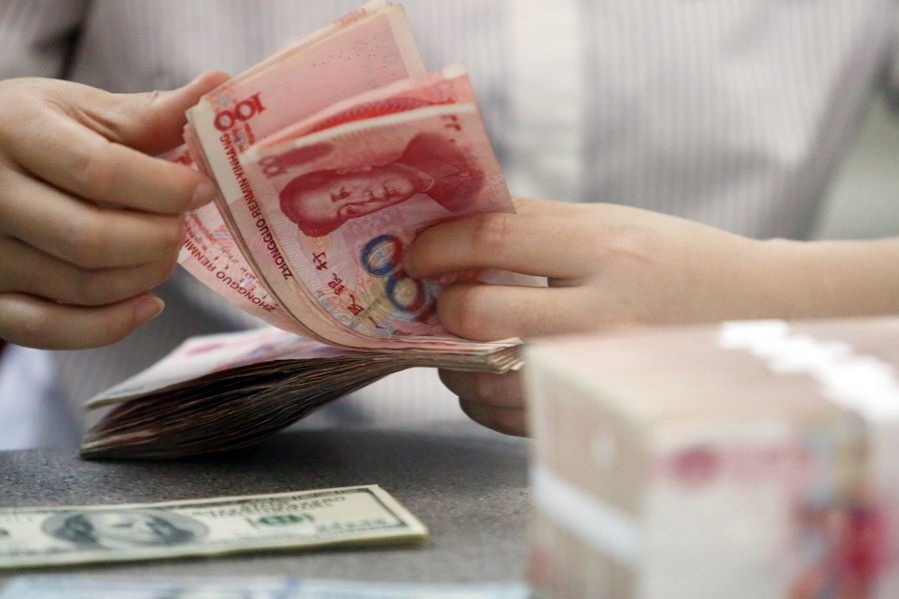Tech future: How innovations are transforming life in China


In today's world, China plays a major role in the field of high technology, showing impressive progress in transportation, e-commerce, automation, and artificial intelligence. Having lived in China for many years, I've seen how quickly technology has grown, becoming a crucial part of everyone's daily life. From high-speed trains to innovative platforms for trading and delivery services, all these elements create a unique technological ecosystem where every part of life is made simpler and faster through advanced technologies.
At the end of 2024, the China National Railway Group introduced in Beijing a new high-speed electric train, the CR450, which quickly earned the title of the world's fastest train. This train was tested at a top speed of 450 km/h, while its cruising speed is 400 km/h, making it one of the fastest and most efficient modes of transportation today. The CR450 stands out not only for its speed but also for a number of other important technical features that place it at the forefront of the global railway industry. According to the developers, the electric train leads the world in terms of energy consumption, internal noise level, and braking distance. Its braking system deserves special attention as it is almost independent of speed, ensuring safe and smooth braking even at extreme speeds.
These achievements in the railway sector not only confirm China's technological prowess but also contribute to the further development of international tourism and business by reducing travel time between major cities and making journeys more accessible and comfortable for millions of passengers. The CR450 is a prime example of how innovations can transform traditional industries and make a significant contribution to economic development and improving the quality of life for the population.
Additionally, while traveling on high-speed trains, passengers have the unique opportunity to order food from their favorite restaurants using the 12306 app, with the order delivered right to their seat. I have used this service many times during my travels across Chinese cities and can say it truly feels like a fairy tale!
However, the most significant impact on modern China is from the development of artificial intelligence. AI is infiltrating every aspect of life, from home management to major industrial operations. Recently, news spread globally about a new Chinese AI project called DeepSeek. This initiative demonstrated that high-quality innovations could be achieved with relatively small financial investments. The development of DeepSeek cost only $5.6 million, a small amount compared to the budgets of many other AI projects, yet DeepSeek matches the performance of the best global models.
DeepSeek quickly gained popularity not only within China but also internationally. It not only showcases high performance but is also available in open source, making it accessible to a wide audience at an incredibly low price—$0.14 per million tokens, compared to $7.5 for the same service from OpenAI . Additionally, the cost of using DeepSeek is significantly lower than many Western alternatives, making it a preferred choice for many companies and individuals.
Besides DeepSeek, other AI systems such as Doubao and Kimi are also widely used in China. Doubao, initially developed with a limited budget and not quite suited for a professional audience, gained popularity thanks to a unique marketing strategy aimed at housewives and residents of small towns. Videos showcasing the simplicity and benefits of using AI in everyday life had a significant impact on consumers, quickly turning Doubao into a market leader.
Artificial intelligence has become a fundamental element of everyday life, influencing various aspects of human activities. For instance, some use AI to search for culinary recipes, others employ it to plan their daily tasks, while others utilize machine learning algorithms to analyze market trends and make scientific discoveries. This diversity of applications highlights the extent of AI integration into different spheres of human activity, contributing to increased efficiency and productivity.
When discussing artificial intelligence, it is essential to consider blockchain technology. Both possess the capacity to significantly influence China's future. Blockchain and AI can be employed to create innovative solutions and produce a wide array of products. A prime example of blockchain technology is digital currency. Digital currencies have become a crucial component of the modern financial system, enabling online payments, transfers, and the storage of funds. Some digital currencies serve as direct analogs to physical money, known as electronic money.
In China, where digital payments account for 90 to 95 percent of the market through platforms such as Alipay and WeChat Pay, cash is increasingly viewed as a relic of the past. Since moving to China, I've become so accustomed to using digital payment systems that using cash in other countries feels like stepping back in time. My reliance on electronic money is so strong that handling cash now feels awkward and sometimes even causes a bit of panic. I really miss the convenience of my trusted WeChat Pay whenever I find myself in front of a foreign ATM, trying to remember my PIN code!
Alipay and WeChat Pay have become the two leading payment systems in China, playing a crucial role in the digitization of the country's financial operations. Their development has dramatically transformed both the way business is conducted and the everyday financial transactions of millions of people. Founded in 2004 as part of the Alibaba Group, Alipay was initially created to facilitate safe and reliable transactions on the Taobao platform. Since then, Alipay has evolved into a comprehensive digital payment platform, offering a wide range of services from money transfers and bill payments to financial management and insurance. The system utilizes complex artificial intelligence algorithms to process millions of transactions each day, ensuring a high level of security and user convenience.
WeChat Pay, launched in 2013 as a feature within Tencent's popular messaging app WeChat, quickly gained popularity due to its integration into one of the most widely used applications in China. WeChat Pay allows users to make payments while chatting, making the process exceptionally convenient and intuitive. Its functionality extends from paying in restaurants and stores to transferring money to friends and family.
Both systems have significantly influenced China's economic activities, promoting the growth of cashless transactions and mobile commerce. It is important to note that Alipay and WeChat Pay actively contribute to the development of the digital economy beyond major cities, expanding access to financial services for residents of rural and remote areas of China. This, in turn, fosters inclusion and financial literacy among the population and stimulates small and medium-sized businesses.
As technology advances, both platforms continue to pursue innovative research and development, integrating technologies such as facial recognition and machine learning to further enhance user experience and expand the range of services offered. Among the most striking examples of technological progress in this industry is the use of the PalmPay contactless payment system, which allows millions of people to make purchases with a single touch every day. This system not only simplifies the lives of consumers but also stimulates the development of the mobile economy in the country.
In the world of online shopping, platforms such as TaoBao and Pinduoduo are known for their wide range of products at good prices. They have strong delivery systems that make sure orders arrive quickly. Within the Alibaba Group, which includes Taobao and 1688, there are many helpful services. For example, Taobao offers free shipping on even low-priced items, and it can deliver anywhere in China in about two to seven days. These platforms also keep transactions safe, ensuring that sellers only get paid after the buyer has received their order.
Taobao also offers a unique service where users can top up their mobile phone credit with any amount they choose, unlike Chinese mobile carriers that only allow fixed amounts such as 10, 20, 30, 50, 100, and 200 yuan. This flexibility has made Taobao very popular. Besides this, Taobao sells a wide range of products and services, including travel packages to other countries. It features an auction section with frequent sales, especially during holiday seasons. There’s also a gaming area on the platform, and users can earn points that they can use to get discounts on various items and services.
It's impossible not to mention the recent advancements in the development of metro systems across China, which are transforming the urban landscape of the country. In many cities, such as Shanghai, Guangzhou, and Chengdu, new metro stations and lines have been launched, making urban travel more efficient and convenient. These improvements significantly ease the movement of citizens and tourists between key spots, including cultural areas, educational institutions, and business centers.
For instance, a new 12th metro line recently opened in Beijing. Now, my favorite Art Zone 798 has become more accessible because this line directly connects my university to the zone, allowing me to reach the heart of the art scene in just 17 minutes. This truly changes the game for culture and art enthusiasts, making access to these treasures more direct and enjoyable.
In conclusion, the achievements observed in China in high technology, transportation, e-commerce, and artificial intelligence reflect deep and systemic changes in the structure of the Chinese economy and social life. The development of high-speed rail systems, exemplified by the CR450 electric train, not only strengthens the country's technological power but also improves intercity connections and travel accessibility, which in turn stimulates the development of tourism and business. Artificial intelligence, particularly projects such as DeepSeek, demonstrates that innovations can be both cost-effective and efficient, sustaining China's competitiveness in the global technology market. Platforms such as Alipay and WeChat Pay are transforming financial transactions, making them more accessible and secure for a broad range of users. This not only promotes the digitalization of the economy but also plays a crucial role in enhancing financial inclusivity across the country.
Thus, China successfully shows how strategic implementation of the latest technologies can contribute to comprehensive socio-economic development, positioning it as a global leader in innovation and technological progress.
Sabina Safarova, from Russia, is a doctoral student at the University of International Business and Economics. The views don't necessarily reflect those of China Daily.
































